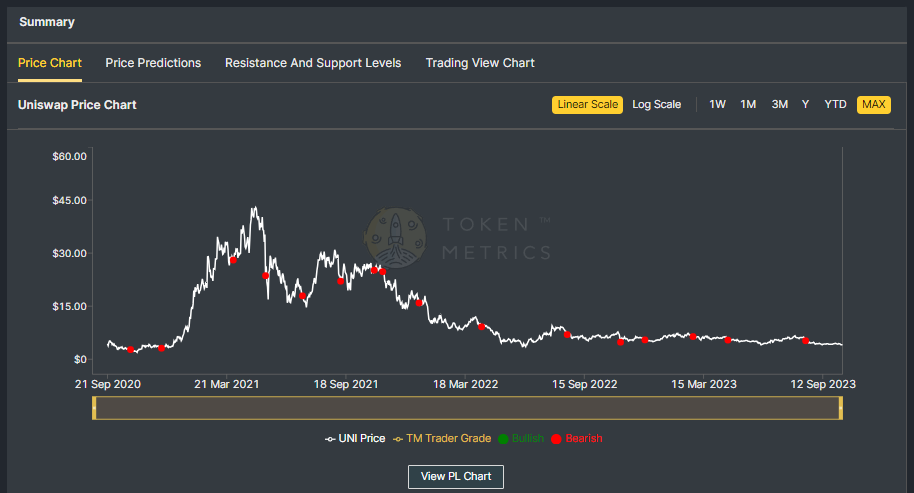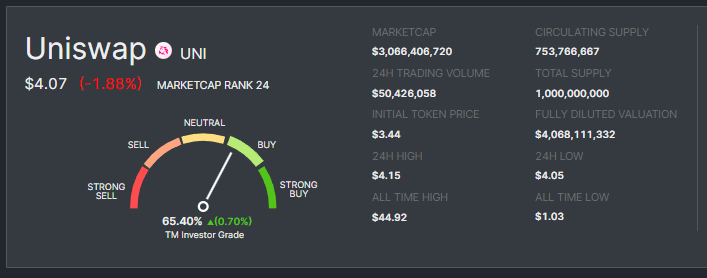Crypto Security and its Importance - A Complete Guide

As digital currencies continue to gain momentum, crypto security has become more critical than ever. Cryptocurrency, though a groundbreaking invention, operates in a digital sphere, making it susceptible to hacking and fraud.
Ensuring crypto security is thus vital for every investor, trader, or enthusiast in the crypto sphere. But why is it so important, and how can you ensure you're fully secured? Let's delve in.
Understanding Cryptocurrency and Its Security
Before discussing the importance of crypto security, let's take a step back to understand what cryptocurrency is. Cryptocurrency is a digital or virtual form of currency secured by cryptography.
This encryption makes it nearly impossible to double-spend or counterfeit. Cryptocurrencies operate on decentralized platforms called blockchain technology, which is a distributed ledger enforced by a disparate network of computers, also known as nodes.
Crypto security, therefore, involves protecting these digital assets through various measures and practices, ensuring the safety of the user's funds and personal information from potential cyber threats. The importance of cryptocurrency security is directly linked to the unique characteristics of the technology itself.
The Importance of Crypto Security
Prevention of Asset Theft: Since cryptocurrency transactions are irreversible, losing access to your funds can be a costly mistake.
Unlike traditional banking systems, where transactions can be disputed or reversed, blockchain technology offers no such luxury. Therefore, top-notch security is vital to prevent theft of these digital assets.
Maintaining Anonymity: Many users turn to cryptocurrencies for their promise of privacy. Without proper security measures, users' identities can be exposed, which can lead to significant risks, including financial loss and personal safety concerns.
Preservation of Wealth: With the burgeoning crypto market, cryptocurrencies have become a popular investment choice. Without the proper security in place, your digital wealth may be at risk.
Investor Confidence: The safety of digital currencies directly impacts investor confidence. If a platform can't offer robust security measures, it risks losing users' trust. Consequently, strong security protocols contribute to the overall growth of the crypto ecosystem.
Key Elements of Crypto Security
Understanding the importance of crypto security is the first step; the next step involves knowing the key elements that make up a secure crypto environment. Here are the crucial aspects:
Wallets: Crypto wallets are an essential part of digital currency security. Wallets can be either software or hardware-based, with the latter generally considered more secure. Keep your wallet's private keys safe, and consider using multi-signature wallets for added security.
Secure Internet Connection: Always make sure your internet connection is secure when dealing with cryptocurrencies. Avoid using public Wi-Fi networks for crypto transactions, as they can be hotspots for cyber threats.
Exchanges: Not all cryptocurrency exchanges are created equal. Before committing, research the security measures an exchange has in place. Look for features like two-factor authentication (2FA), cold storage, and withdrawal whitelists.
Education: Understanding the technology behind cryptocurrencies and the various threats you could face is crucial. Regularly keep yourself updated with the latest security trends and threats in the crypto space.
Common Security Risks Associated with Crypto
Navigating the cryptocurrency landscape involves being aware of the potential security risks associated with it. Here are some common security threats you should know:
Phishing Attacks: These occur when an attacker masquerades as a trustworthy entity to trick victims into revealing sensitive information, such as login credentials and wallet private keys. Phishing can happen via email, text messages, or even fake websites.
Exchange Hacks: While cryptocurrency exchanges have bolstered their security measures over the years, they are still lucrative targets for hackers. In these attacks, hackers exploit security vulnerabilities to steal funds from exchange users.
Wallet Hacks: Crypto wallets, especially those connected to the internet (hot wallets), are susceptible to attacks. If an attacker gains access to your wallet's private keys, they can drain your funds.
Ponzi and Pyramid Schemes: These fraud schemes promise high returns to investors. However, they rely on funds from new participants to pay profits to earlier investors. Eventually, when new investors dry up, the scheme collapses.
Awareness of these common risks is the first step towards better protection in the crypto space. As an investor or trader, you should always stay vigilant and double-check any information or transactions you make.
How to Protect Your Cryptocurrencies?
As the world of cryptocurrency grows, it becomes increasingly important to take measures to protect your digital investments. Here are some steps you can follow:
Use Secure Wallets: Opt for wallets known for their strong security features. Hardware wallets, which store your private keys offline, offer a higher level of security than online wallets.
Implementing 2FA: Two-Factor Authentication (2FA) adds an extra layer of security to your accounts. This means even if your password is compromised, an attacker would still need your second factor to access your account.
Keep Software Up-to-date: Ensure that your devices, wallets, and apps are up to date. Updates often include security enhancements that protect against newly discovered threats.
Use Secure Networks: Avoid conducting crypto transactions over public Wi-Fi networks. These networks can be insecure, making it easier for hackers to intercept sensitive data.
Be Wary of Phishing Attempts: Be vigilant about potential phishing attempts. Always double-check emails and messages, especially those prompting you to reveal sensitive information.
While there's no foolproof way to guard against all crypto security threats, these steps can greatly reduce your exposure to risk and help keep your investments safe.
Role of Cryptocurrency Security Standards
Cryptocurrency Security Standards (CCSS) are a framework of security protocols designed by the CryptoCurrency Certification Consortium (C4).
This standardized set of rules provides an essential guideline for organizations handling cryptocurrencies, ensuring the safe management and security of these digital assets.
The CCSS covers a wide range of security aspects like key generation, storage, and transaction operations, thus offering protection against potential cyber and physical threats.
Organizations adhering to CCSS go through regular audits and are classified into three security levels. While not an absolute guarantee against attacks, CCSS adherence signifies a platform's commitment to proactive security measures, offering users a safer environment for their crypto transactions.
Top Examples of Crypto Thefts in History
Even though blockchain technology is highly secure, it's not completely immune to breaches. Here are some of the most notable cryptocurrency thefts in history that highlight the importance of crypto security:
Mt. Gox (2014): Once handling over 70% of all Bitcoin transactions worldwide, Mt. Gox was a significant player in the early days of Bitcoin.
However, the platform was hacked in 2014, resulting in a loss of around 850,000 Bitcoins, then worth around $460 million. The event remains one of the most infamous episodes in crypto history, leading to the platform's eventual bankruptcy.
Coincheck (2018): The Tokyo-based exchange suffered one of the biggest crypto heists when hackers stole NEM tokens worth around $534 million. The attack exploited a weakness in Coincheck's security system, as the exchange stored its assets in a hot wallet instead of a much more secure cold wallet.
Binance (2019): In a large-scale security breach, hackers withdrew 7000 Bitcoins (around $40 million at that time) from the world's largest cryptocurrency exchange by trading volume.
Binance confirmed that the hackers employed various methods, including phishing and viruses, to obtain a large number of 2FA codes and API keys.
These instances underline the significant security risks present in the cryptocurrency sector. They serve as reminders of the need for robust security measures and the importance of due diligence when handling cryptocurrencies.
Even as the technology matures and security improves, remaining vigilant about potential risks is essential in the crypto space.
Frequently Asked Questions
Q1. What is a private key in the context of cryptocurrency?
A private key is a sophisticated form of cryptography that allows a user to access their cryptocurrency. It's an integral aspect of bitcoin and altcoins, and its secure nature ensures that only the owner of a private key can send cryptocurrency.
Q2. What is Two-Factor Authentication (2FA) and why is it important?
Two-Factor Authentication (2FA) is a security measure that requires two types of identification before accessing an account. Often, this involves a password and a secondary code sent to a trusted device.
In the context of crypto security, 2FA adds an extra layer of protection, making it harder for potential intruders to access your crypto assets.
Q3. What is the difference between a hot wallet and a cold wallet?
A hot wallet is connected to the internet and allows easy access and transfer of assets. However, this convenience comes with a risk, as it can be a target for online hacking attempts.
A cold wallet, on the other hand, is an offline storage option for cryptocurrencies, making it immune to online hacking attempts but somewhat less convenient for frequent use.
Q4. What are the most secure cryptocurrency exchanges?
The security of a cryptocurrency exchange can vary, and often depends on factors like the use of cold storage for assets, withdrawal protections, and 2FA. Some of the exchanges known for their security measures include eToro, Kraken, and Coinbase. However, users should always conduct personal research before choosing an exchange.
Q5. How can I keep up-to-date with the latest threats in the crypto space?
Many online resources can keep you updated on the latest security threats in the crypto space. Websites like CoinDesk, Cointelegraph, and cybersecurity blogs often report on recent security breaches and potential threats. Following crypto security experts on social media can also be helpful.
Q6. Are mobile wallets safe for storing cryptocurrencies?
While mobile wallets offer convenience, they are not the safest option for storing large amounts of cryptocurrencies due to potential threats like malware and hacking attempts. For larger investments, hardware or cold wallets are often recommended due to their superior security.
Q7. What steps should I take if my cryptocurrency has been stolen?
If you've fallen victim to a cryptocurrency theft, immediate actions include reporting the incident to local law enforcement and contacting your wallet provider or exchange to inform them of the breach.
If possible, identify the transaction ID for the fraudulent transaction. While recovery of stolen crypto assets is challenging, these steps are essential to take as quickly as possible.
Conclusion
Cryptocurrency has the potential to revolutionize financial systems and empower individuals worldwide. However, it's vital to understand that investing in cryptocurrencies also means taking responsibility for the security of your digital assets.
As the crypto ecosystem evolves, so do the threats that aim to destabilize it. Crypto security is not just essential - it's an absolute necessity for anyone venturing into the world of digital currencies.
As the cryptocurrency market continues to grow, it becomes increasingly critical for us to prioritize security to protect our investments and maintain the overall integrity of the blockchain ecosystem. Stay safe, stay secure, and remember: your digital wealth is your responsibility.
Disclaimer
The information provided on this website does not constitute investment advice, financial advice, trading advice, or any other sort of advice and you should not treat any of the website's content as such.
Token Metrics does not recommend that any cryptocurrency should be bought, sold, or held by you. Do conduct your own due diligence and consult your financial advisor before making any investment decisions.
Create Your Free Token Metrics Account

.png)




%201.svg)
%201.svg)


%201.svg)












.svg)




.png)